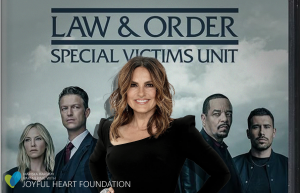As a new academic year begins with all of its invaluable opportunities, there is another side of the coin that sits heavily on many students’ shoulders. Perhaps it does not creep up until the parents leave the dorm for the first night at school, or maybe it lingers all the way from the beginning of August.
With the weight of opportunity comes the weight of the world, and with the weight of the world comes the most paramount anxiety of your life.
Why? Why do you, of all people, deserve to have anxiety? You sit in a classroom many people don’t get the privilege to sit in, receiving an education that is all but mythical in some corners of the planet. What is it that leads to a student sitting in a world of opportunity, but drowning as everyone else seems to swim?
Deborah Montgomery-Coon, director of counseling services at Bradley University, says there is no one-size-fits-all answer.
“It can be a number of things,” Montgomery-Coon said, adding that this anxiety is especially pertinent at the beginning of the year. “It can be students trying to adjust to their schedules, or having trouble making friends because of that stress.”
Unfortunately, there is an abundance of data that agrees with Montgomery-Coon. According to the 2013 National College Health Assessment, about one-third of students in the U.S. are affected by depression, with half of that demographic suffering from debilitating anxiety. A 2016 study from Penn State University’s Center for Collegiate Mental Health also reports that 61 percent of their 100,000 examined students also suffered from anxiety disorders.
As the data suggests, student anxiety is a pertinent, if not indefinable stigma. With this in mind, what tools are available to the average student that may give them a chance at combating it?
This is the part of the article where I unfurrow my long, unwashed locks and don my peace symbol necklaces decked out with various herbs.
Music — yes, go ahead, roll your eyes — is a portal to another, less dreadful dimension. This isn’t just an opinion, either; the American Music Therapy Association states music therapy as “the clinical and evidence-based use of music interventions to accomplish individualized goals within a therapeutic relationship by a credentialed professional who has completed an approved music therapy program.”
Yes, even the association specializing in music therapy needs a lengthy sentence to describe music therapy.
While my purpose here isn’t to describe the facets of the established medical profession, the notion that music often helps people disconnect from stress is one worth talking about, especially at the start of the school year. It has the potential to unlock childhood nostalgia, or to inspire people to live up to their standards, or — most often — to unleash a gnarly headbang with an imaginary Dean VMNT guitar.
Ellie Weber, a senior public relations major, knows exactly the transformative nature of music. Having struggled with anxiety herself during school, she decided that she would be the one helping others.
“I have been in band for eight years,” Weber said. “If I could rely on something during the school day, it was band … That takes me away for a little while, and when I come back, I can see my stresses with a little more thought and organization.”
Music, whether played or heard, is a uniquely qualified personal therapist. One person’s Rammstein could easily be another person’s Beethoven. One person’s Insane Clown Posse could be another person’s Celine Dion. One person’s Milli Vanilli could be another person’s Ed Sheeran. Music is at once universal and individual, and this is why it is able to allow us an escape while still connecting to those sweet wiggling sound waves.
Music therapy (at least the version I am describing in this piece) is an exceptional tool. Montgomery-Coon shared with me that those students who show signs of improvement in their anxiety are ones that use coping strategies healthily. If I may say so, I believe music can serve as one such coping strategy. Just don’t blast it through the stereos in your dorm and say you’re having therapy when the cops show up.
Good luck this year, everyone.




